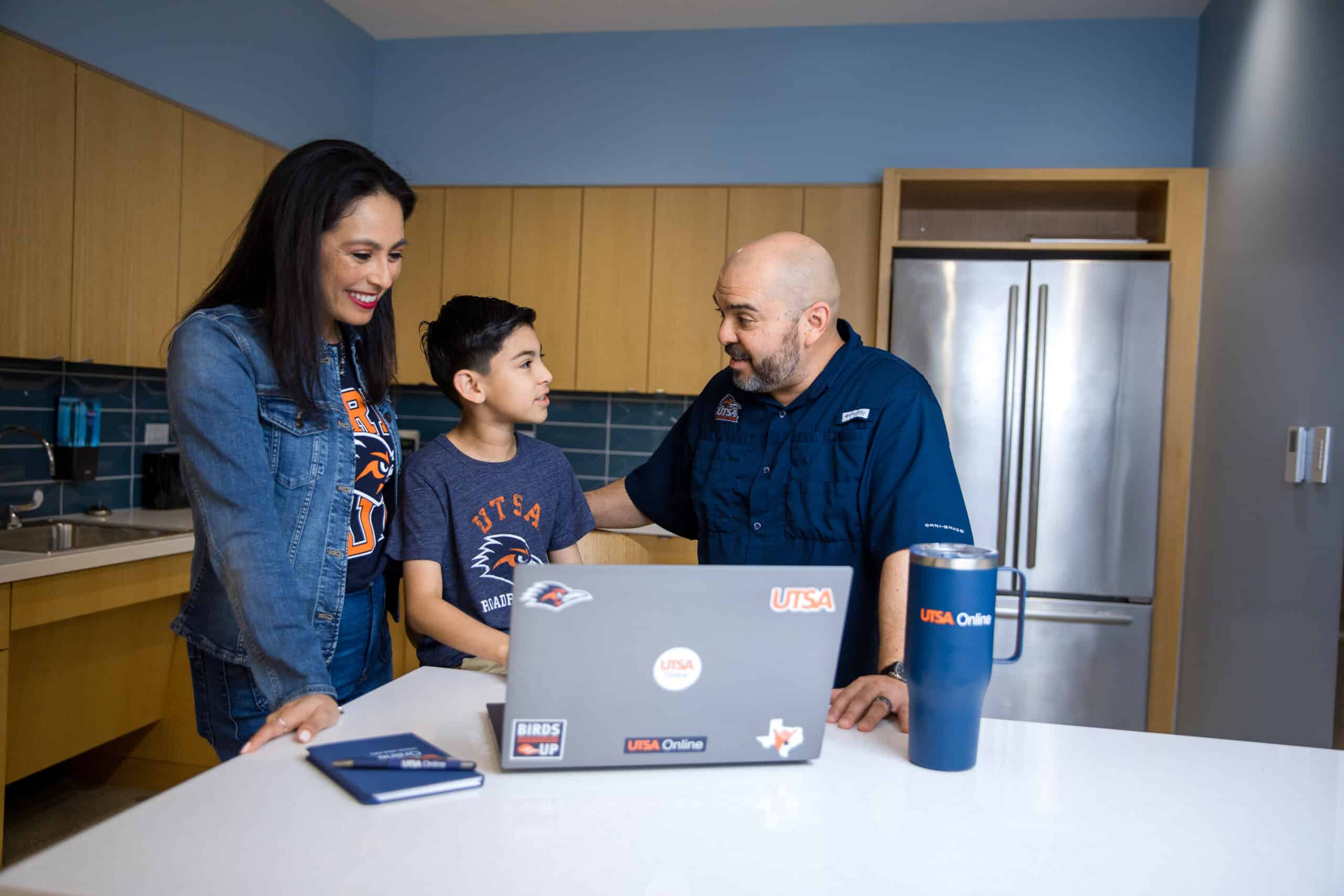Online University vs. a Community College
Many students face the decision between an online university and a community college when planning their educational journey, and if you’re in that boat, we’re here to help. Let’s explore whether or not transferring from a community college to an online university is the right choice, or if it’s better to start at a university first.
There’s no one-size-fits-all answer to this question. Both choices have their own distinct advantages. With factors like transferability of courses, subject matter, and relationship-building with faculty members coming into play, it’s essential to consider the different factors of both options so you can make an informed decision.
The choice is ultimately yours. What may be best for other people you know may not be best for you. So in this article, we’ll break down some key differences between an online university and a community college to help arm you with the information you need to make the best decision for your unique situation.
What to Consider
There are several factors to consider when deciding between a community college and an online university. At a community college, you can earn an associate’s degree that can help you narrow down your field of interest. This type of degree often takes approximately two years to complete and can potentially put you on a path towards a four-year degree.
While both options may provide you with the flexibility you need to achieve your academic goals around your schedule, let’s look at other factors that may impact your decision about whether to attend community college or an online university.
Transferability of Courses
When attending a community college, it’s essential to consider what courses you’re taking and whether or not they’ll transfer to a four-year institution in the future. This is especially important for specialized programs or out-of-state universities that might recognize different courses.
Sometimes, an online university and a community college will have matriculation agreements. For example, UTSA has agreements with Alamo Colleges and Austin Community Colleges that allow students to better plan their transfer credits between the institutions.
This can be helpful in a program like UTSA Online’s Multidisciplinary Studies degree. Here, you’ll have some flexibility when it comes to transferring courses to help you stay on time with graduation.
Another thing to consider about transferring into a university is that the catalog sometimes changes. By transferring in during a catalog year change, you may end up needing prerequisites or other courses that weren’t in your original plan, which could cost more money and delayed graduation.
With UTSA Online, however, your catalog year is locked in from the start. You won’t have to worry about unforeseen course requirements popping up, because you’ll know exactly what you need to take to build your Bold Future.
Explore UTSA Online's ProgramsSubject Matter
Every institution has a unique approach to teaching, which should also be considered. The way a subject is taught and the skills that are emphasized may vary between a community college and an online university, especially for highly specialized degrees. It’s important to consider which program aligns best with your learning style and career goals.
online university, especially for highly specialized degrees. It’s important to consider which program aligns best with your learning style and career goals.
In the case of specialized degree programs, it may be best to complete your full degree at the same university. This will ensure you learn all the right skills in your lower division classes so you won’t need to take additional courses to prepare you to advance in your program, which would cost more money and could cause a delay in your graduation.
For example, UTSA and the Alamo Colleges both teach programming classes, but those classes may focus on different languages. By starting in UTSA’s 100% online Cybersecurity degree, you’ll be sure to learn the right skills you need to advance in the program on the timeline you and your advisor set.
Relationship Building
By attending an online university and earning a degree from one school, you’ll have the opportunity to foster longer-term relationships with your professors.
For example, you may find a course from a communication teacher when you first start. By completing all four years in one program, you may be able to take multiple courses from that same instructor. Beyond taking classes from someone you like, this could be beneficial for networking opportunities in the future.
Guarantee of Online Classes
While many community colleges have begun offering more online classes, they may not offer your full degree plan entirely online. Instead, they might offer these flexible options on a course-by-course basis, and some of the fully online courses may require you to meet at specific times.
At UTSA Online, we guarantee that all courses will be 100% online with no specific meeting times. This means you’ll have deadlines for your coursework each week, but you get to decide when to complete your classes around your already busy schedule. There’s also no need to drive to campus and pay for parking, because you can study wherever you are.
FAFSA Changes
While community colleges have traditionally been the most cost-effective route, did you know there have been changes to the FAFSA that may mean you qualify for higher amounts of financial aid?
Make sure you don’t assume community college will be the cheaper route. Explore all your options, making sure to factor in external financial aid opportunities as well. If you do qualify for enough to make an online university the better option, you can save time and money by starting at your chosen institution instead of attempting to transfer later.
Advisors that know the Curriculum
Community college advisors are often expected to know the transfer plans for multiple universities. This can be quite the task to keep up with, especially when those transfer plans or approved classes can change term over term or year over year! Everyone tries their best to keep up with and communicate any updates and/or changes to articulation agreements, but everyone is also human. .
 By starting directly at UTSA Online, you’ll have a dedicated advisor who knows your curriculum inside and out. You’ll meet with your advisor at the beginning of your academic journey and then once each semester. You’ll discuss your goals and they’ll help you create a plan to achieve them, then they’ll help you re-assess as you go in case you need to make adjustments.
By starting directly at UTSA Online, you’ll have a dedicated advisor who knows your curriculum inside and out. You’ll meet with your advisor at the beginning of your academic journey and then once each semester. You’ll discuss your goals and they’ll help you create a plan to achieve them, then they’ll help you re-assess as you go in case you need to make adjustments.
Student Support
There are other factors to consider when looking at an online university or a community college, like the support you’ll receive once enrolled.
At UTSA Online, you’ll have access to free mental health resources through TimelyCare, online tutoring options, a writing center, a career center, and other resources to help you succeed in your academic journey and beyond.
You’ll also learn from world-renowned faculty who are experts in their field. These leaders and pioneers typically have PhDs, while at community colleges some professors may not have a terminal degree.
Conclusion
The choice between an online university and a community college is a significant decision that should be made after careful reflection and research. It’s about more than just the obvious aspects like the number of years it’ll take to earn your degree.
As you navigate through your options, remember that the most critical factor is choosing the path that works best for your educational and career goals. It’s your journey, your career, and your life, so feel empowered to make the decision that’s best for you.
Are you interested in learning more about UTSA Online’s Programs?
UTSA Online offers several 100% online programs, including bachelor’s, master’s, and post-graduate certificate programs. Explore all of our programs to find which one is right for you. If you are ready to start your career path, contact UTSA Online’s Undergraduate Enrollment Team at 210-458-4000 or [email protected], or the UTSA Online Graduate Enrollment Team at 210-458-4400 or [email protected].
Explore UTSA Online's Programs



